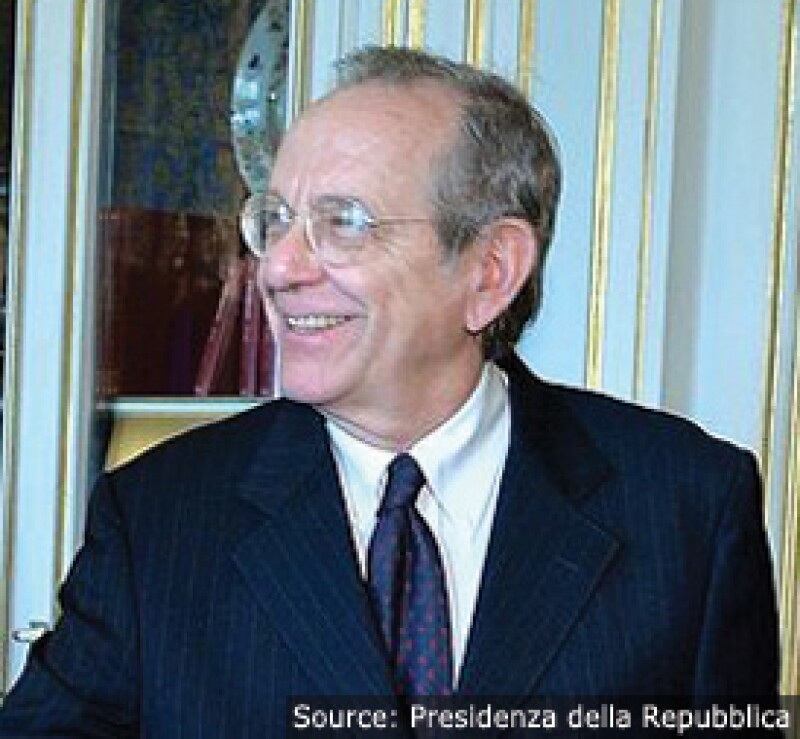
|
When Pier Carlo Padoan joined the government of new Italian prime minister Matteo Renzi in February, he returned to a situation he knew well. Before almost seven years at the OECD in Paris, first as deputy secretary general, later adding the role of chief economist, he had been economic adviser to two of Renzi's predecessors, Massimo d'Alema and Guiliano Amato, between 1998 and 2001. As director of one of the eurozone's three biggest economies, Padoan has quickly assumed an influential role in the EU, particularly while Italy has had the presidency of the European Council during the second half of the year. The December 9 meeting of EU finance ministers agreed on inserting an anti-abuse clause in the Parent-Subsidiary Directive and on the Directive on Administrative Cooperation, which incorporates the Common Reporting Standard, the global standard for the automatic exchange of tax information, though there was no progress on a financial transaction tax.
Another significant intervention came earlier in December, when he, Wolfgang Schauble, Germany's finance minister, and Michel Sapin, his French counterpart, wrote to Pierre Moscovici, the new EU tax commissioner and another member, along with Schauble, of the Global Tax 50, urging him to produce plans for an anti-BEPS directive, to be agreed by the end of 2015. The ministers said the new rules should cover mandatory and automatic exchange of information on cross-border tax rulings, including transfer pricing; a register identifying beneficiaries of trusts, shell companies and other non-transparent entities; and measures against tax havens.
Padoan also found the time in March to launch an extensive reform of the Italian tax system. His goal is to produce changes that will clamp down on evasion as well as introduce more certainty, stability and simplicity into the rulebook.
The finance minister has had a lengthy career as a public servant. From 2001 to 2005, he was the Italian executive director at the IMF and has also been a consultant to the World Bank, European Commission and European Central Bank. This has been quite apart from a distinguished career as an economics professor. He is bringing all this experience to bear as he strives to create a better tax system at home and abroad.
The Global Tax 50 2014 |
||
|---|---|---|
| Gold tier (ranked in order of influence) 1. Jean-Claude Juncker 2. Pascal Saint-Amans 3. Donato Raponi 4. ICIJ 5. Jacob Lew 6. George Osborne 7. Jun Wang 8. Inverting pharmaceuticals 9. Rished Bade 10. Will Morris Silver tier (in alphabetic order) Joaquín Almunia • Apple • Justice Patrick Boyle • CTPA • Joe Hockey • IMF • Arun Jaitley • Marius Kohl • Tizhong Liao • Kosie Louw • Pierre Moscovici • Michael Noonan • Wolfgang Schäuble • Algirdas Šemeta • Robert Stack Bronze tier (in alphabetic order) Shinzo Abe • Alberto Arenas • Piet Battiau • Monica Bhatia • Bitcoin • Bono • Warren Buffett • ECJ Translators • Eurodad • Hungarian protestors • Indian Special Investigation Team (SIT) • Chris Jordan • Armando Lara Yaffar • McKesson • Patrick Odier • OECD printing facilities • Pier Carlo Padoan • Mariano Rajoy • Najib Razak • Alex Salmond • Skandia • Tax Justice Network • Edward Troup • Margrethe Vestager • Heinz Zourek |
||









